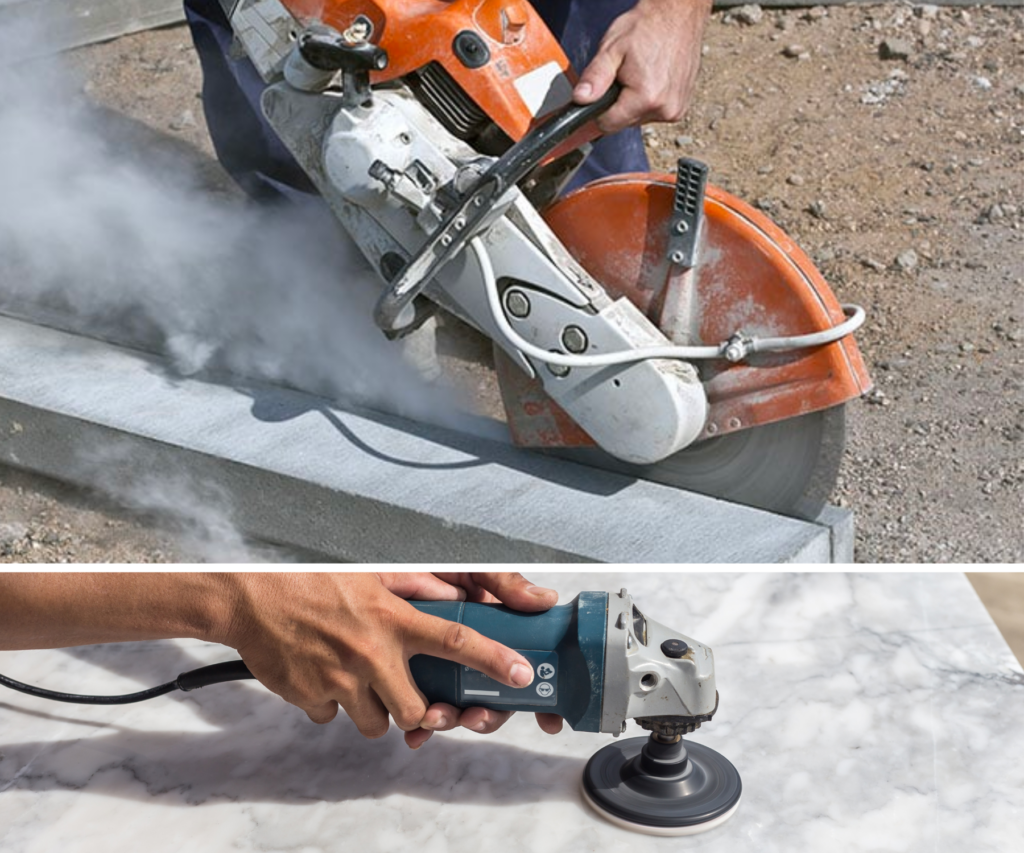SILICA SAFETY
Triton Stone is striving to help make a safe work environment for our industry workers.

It’s important to us that Triton be at the forefront of communication to our community about the dangers of silica exposure. As sponsors of the NSI safety committee, we are passionate about educating all those within our industry on the effective ways to mitigate potential exposure crystalline silica.
Information on best practices and additional resources are available via the Natural Stone Institute. Click here to visit their site and review the resources provided.
The NSI’s page includes online safety courses and training materials, including the Silica Exposure Standard and OSHA Compliance webinar. It also includes the following useful documents:
- Checklist – Silicosis Prevention
- Silica Safety Precautions
- Silicosis: An Industry Guide to Awareness and Prevention
- Silica Exposure Control Plan for the General Industry
Air quality monitoring is the only way to ensure compliance with the permissible exposure limit for crystalline silica, even in shops using predominantly wet methods.
Wet cutting will very likely reduce dust levels compared to dry cutting or grinding. However, many factors influence the levels that are going to result from a particular process, such as how the water is applied. The rate at which the water is applied could also influence the amount of dust that escapes from the process.
If your company is using a dry ventilation system, make sure that the system is set up properly and pulling enough air through to filter the silica out of the air and away from the worker. Whether you employ wet or dry processing, the only way to establish a benchmark for air quality in your facility is with professional air monitoring.
Many health and occupational health organizations offer free air quality testing. If that is not available to you, there are also numerous qualified private laboratories that can provide the service.
Triton Stone Group is committed to educating those within our industry on the effective ways to mitigate potential exposure to crystalline silica. We are working with our suppliers to ensure products that pose a silicosis risk are properly labeled. Triton Stone Tools has a wide range of products available to help fabricators protect themselves and their employees from Silicosis. Triton Stone Group is a sponsor of the Natural Stone Institutes Safety Committee who is constantly promoting best practices for those in the industry.
BROWSE TOP RECOMMENDED PRODUCTS FOR SILICA SAFETY MANAGEMENT

